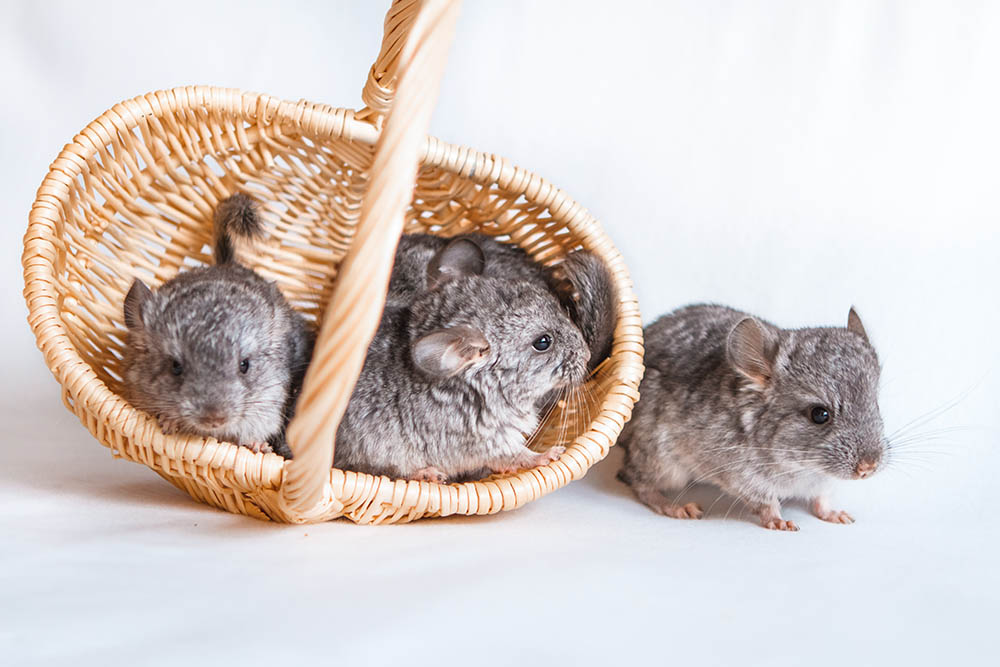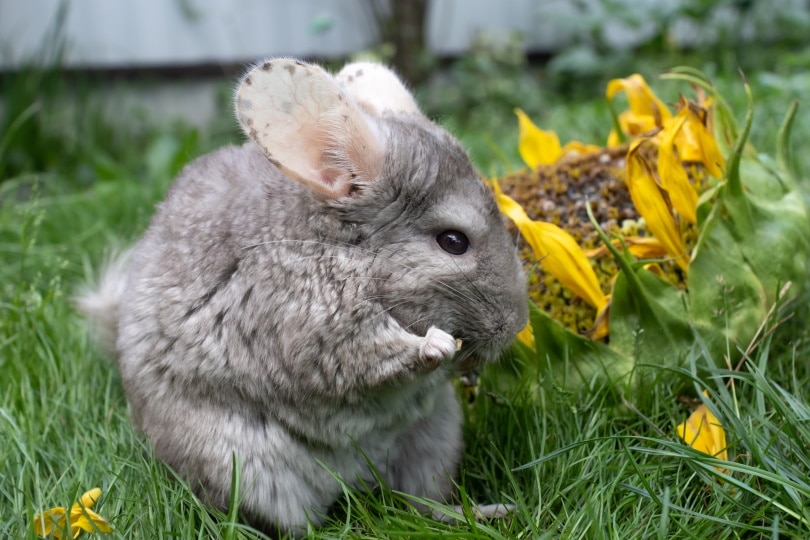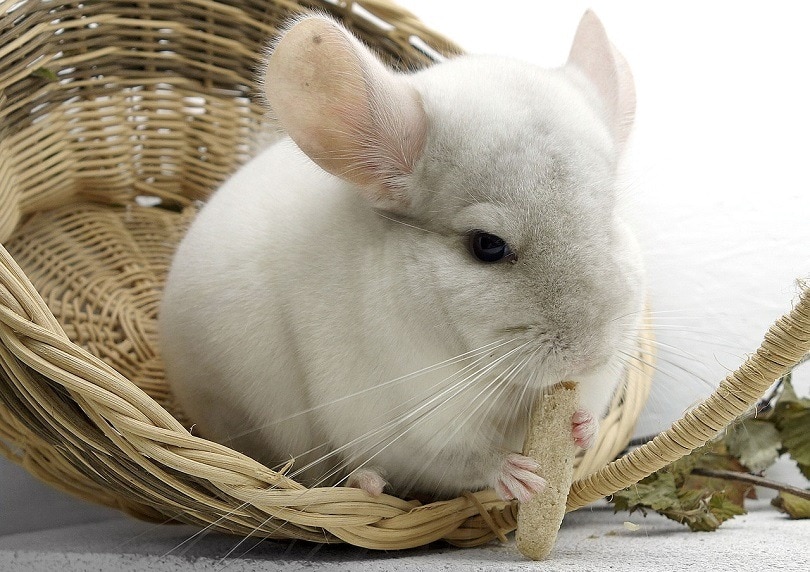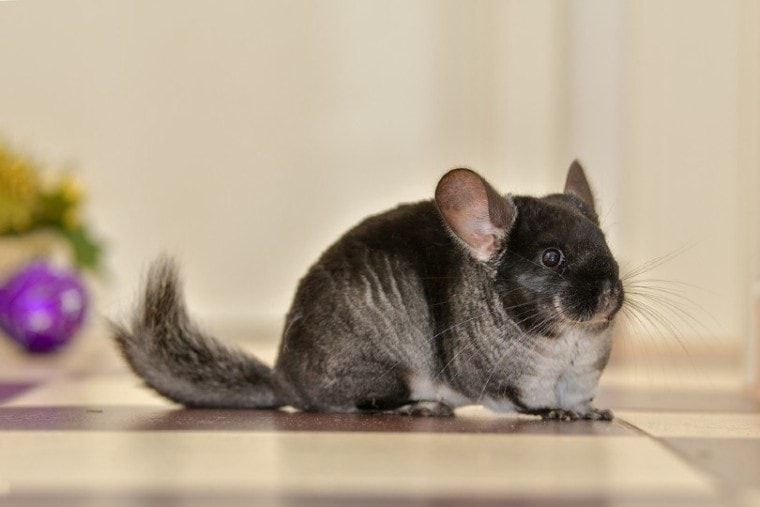
If you were thinking about owning a rodent, chinchillas probably came up during your search. It’s pretty widespread that rodents kept as pets are pretty smelly. So, is it the same story for chinchillas? The answer is not necessarily—which might be lucky for you.
If you want a rodent with as little odor as possible, chinchillas are definitely one of the best options. Chinchillas are nearly odorless. But are other aspects of care in alignment with what you want in a pet? Let’s find out.
All About Chinchillas
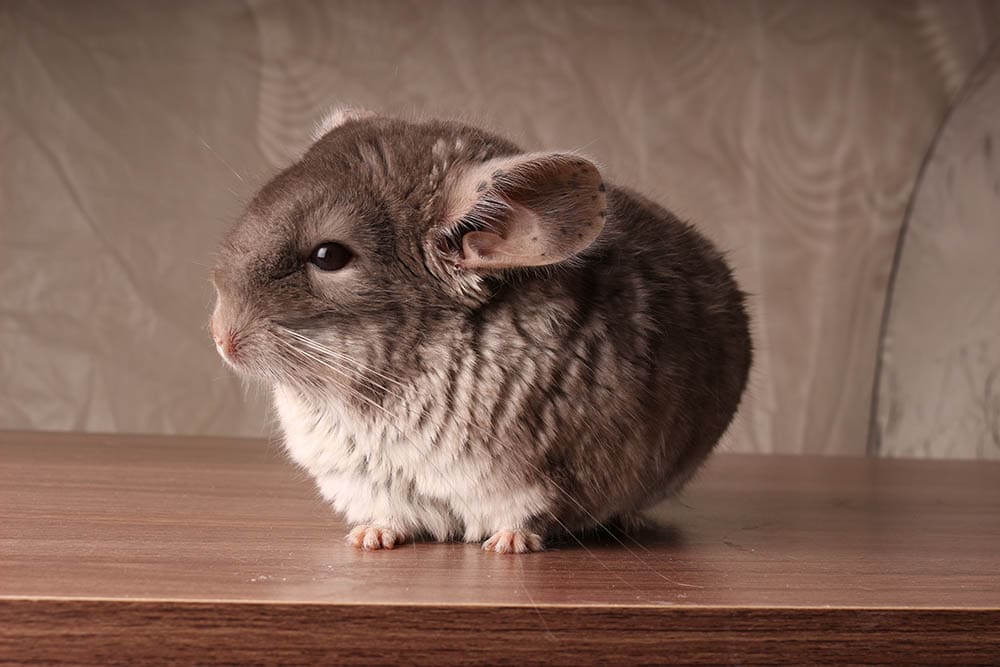
| Lifespan: | 10-20 years |
| Diet: | Primarily herbivorous |
| Size: | 9-14 inches (23 – 36 cm) body, 3-6 inch (7 to 15 cm) tail |
| Colors: | Light-very dark standard, white Wilson, white velvet, sapphire, blue diamond, pink white, homo beige, brown velvet, violet, black velvet, homo ebony, hetero ebony |
Chinchillas are rodents native to the mountains of South America. They entered the pet trade at the end of the 19th century.
Since then, they have become one of the most commonly distributed rodents on the market today. Breeders have worked diligently to create different tones and colors.
Chinchilla Personality
Chinchillas tend to be social, affectionate, and playful. They are usually a bit skittish at first until they are bonded with their people. However, it can take a while to tame them.
Afterward, they remain lively and peppy—but they will love engaging and playing with cage mates and owners.
Chinchilla Care
Now, let’s get the skinny on chinchilla care. Sure, they don’t traditionally smell, but what are the care requirements to keep things sanitary?
Diet
Chinchillas are herbivores that eat grass and hay-based pellets. Since they have incisors that grow continuously throughout their lives, it’s important that you give them appropriate foods to file down the teeth.
Enclosure
The enclosure you choose for your chinchilla should be a minimum of 4 x 4 x 3 feet. Since chinchillas have sharp teeth, steer clear of wood enclosures and use wire instead. However, wire cages should have very narrow spacing to prevent leg injuries.
Stay away from galvanized wire since it can be toxic if ingested, as it contains zinc.
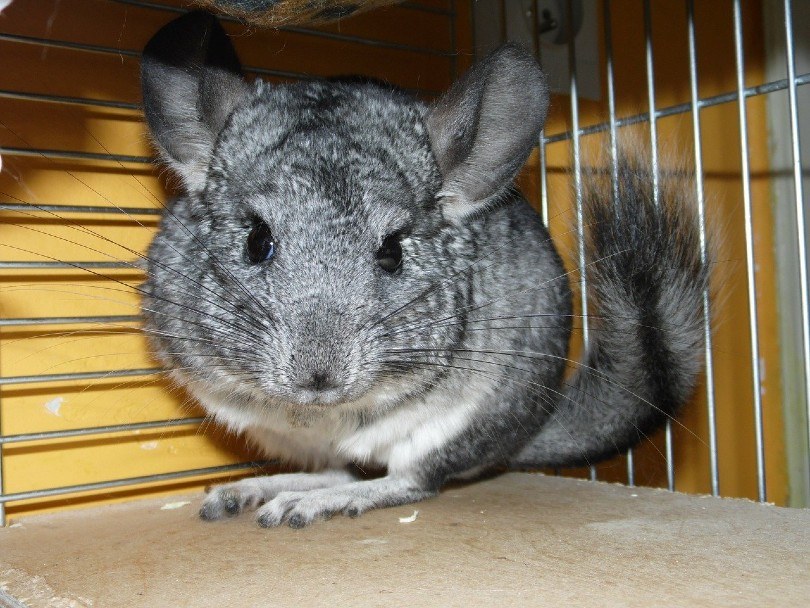
Grooming
Chinchillas actually have special grooming needs that keep their fur and skin soft. You can buy it commercially—it’s called chinchilla dust.
It penetrates their dense coats to reduce oil production in the coat. This cuts out on a lot of the hard work, as you should never bathe your chinchilla in water.
Chinchillas don’t need routine brushing, but they can be brushed. They might just love the way it feels, and it’s a good way to bond!
Bedding
Chinchillas can be very sensitive to particular beddings. Some might recommend wood shavings or scented bedding, but we say it’s best to steer clear altogether.
The best alternative approach would be recycled paper bedding.
Chinchilla Odor (or Lack Thereof)
As we stated at the beginning, chinchillas have next to no odor. Not even their urine or feces carries too strong of a smell. Now, that’s not to say that unsanitary living conditions can’t cause eventual displeasing aromas. But with routine cleaning, it’s not common.
Chinchillas are highly desirable because of their almost non-existent smell. It makes them nearly undetectable in the home—whereas other rodents have skin or waste smells that are hard to mask.
Their lack of smell doesn’t mean you should slack on cleanup. Living in their own waste can make them very sick, even if you can’t really smell it. So, always perform cage cleanings as needed.
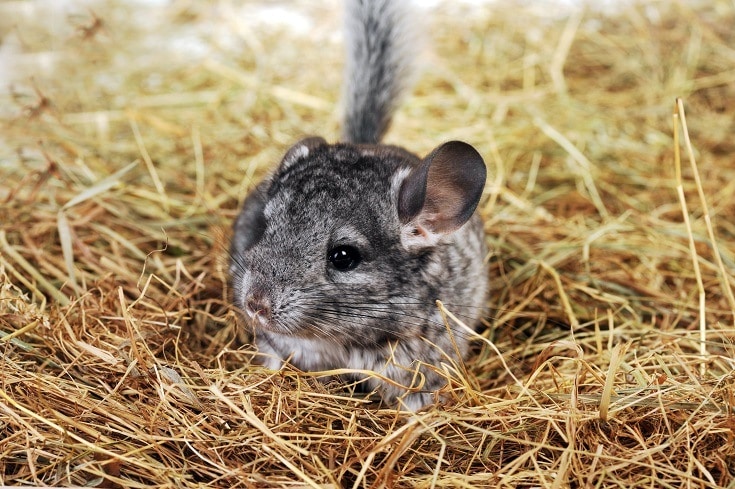
What If Your Chinchilla Starts to Smell?
If you’ve noticed that your chinchilla doesn’t smell as good as they once did, don’t ignore the sign. It could be a red flag that there is an underlying health condition.
If you’re concerned about your chinchilla’s smell, don’t hesitate to get them to your vet. If you’ve never taken your chinchilla to the vet, you need to search for an exotic veterinarian near you, as traditional vets may not always have the equipment to restrain and examine rodents.
Conclusion
It might ease your mind to know you can own such a cute rodent without dealing with the stench. Like rats and even guinea pigs, some species can dirty their cage so quickly with smelly urine and feces. Others, like ferrets, have a natural musk that develops from body oils through the skin.
Chinchillas have neither problem unless, of course, there is a health condition to speak of. If you have any concerns that your chinchilla might be sick, get them to your chosen exotic animal veterinarian straight away for further examination.
Featured Image Credit: ATTILA Barsan, Shutterstock






